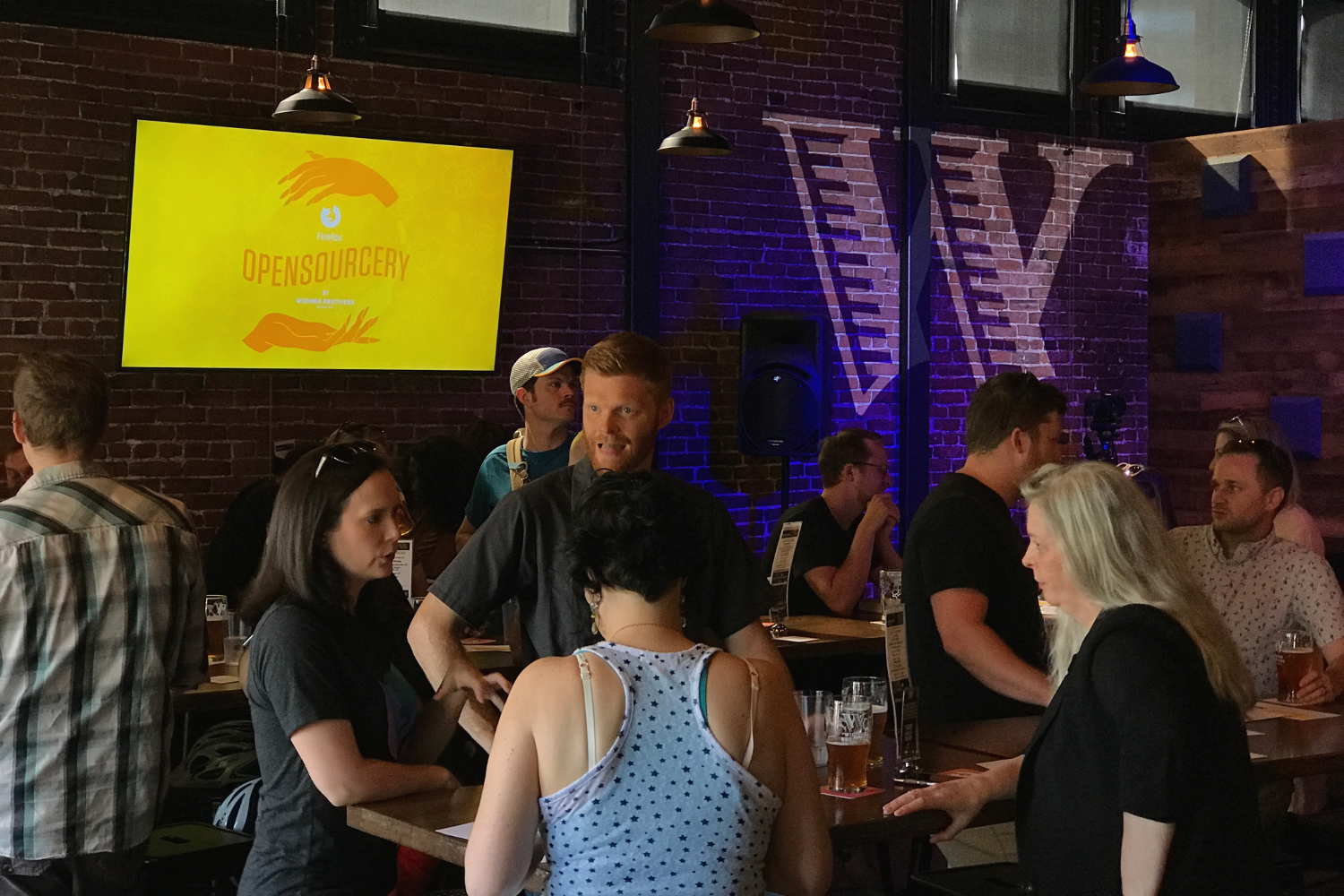
Mozilla is seriously into open-source. So seriously, in fact, that developer doesn’t just want to see it restricted to software. In its eyes, just about anything can go open-source. Even beer.
To prove it, Mozilla Firefox teamed up with Widmer Brothers, a brewery based in Portland, Oregon. The companies crafted a survey for community input on the style, hops, and any special additions drinkers might want to see. Responses were tabulated, weighed, and turned into a recipe by the brewers at Widmer.
The result, to no one’s great surprise, was the OpenSourcery Tropical IPA, which we tried at the beer’s launch event. Beer snobs might note that the beer came out decidedly un-tropical, instead leaning toward a more typical American IPA with heavy citrus notes. Still, any concerns that open-source brewing might lead to an undrinkable mish-mash were squashed; on the contrary, OpenSourcery is the definition of a quaffable IPA, the kind you’ll likely find in any brewery across the U.S.
Thomas Bleigh, Innovation Brewer of the Craft Brew Alliance, was on hand to talk about brewing the batch. “I’ve always wanted to see how we could interface beer and technology together in a meaningful way to create an interesting beer,” he told Digital Trends. “Originally, I thought metadata might be the way I’d want to gather information, use it to shape a beer, but then I got introduced to Mozilla. They were keen on open-sourcing, crowd-sourcing beer, so there can be more engagement and participation from a consumer standpoint.”

Open-source isn’t about doing something once, of course. It’s a philosophy that’s heavy on iteration and gradual improvement over time, and Bleigh says he plans to take the course with Mozilla’s help. “Think of this like early days of software, there will be a version 1.0, 2.0, 3.0, 4.0. What we’ll do eventually here is after this tasting, we’ll get feedback to do a second version to bottle it up, can it. We’ll also give away the recipe, so people can open-source it at home and make their own version.”
Bleigh would also like to refine how input is provided. The first batch was made off a survey, which meant participants could only choose from batches of predetermined options and had no direct input over the recipe’s details. The hope is to refine that in a future with the use of a homebrew calculator that allows calibration of specific malt and hop additions, as well as how the beer is brewed. Bleigh wants it to be a “very intimate experience,” where beer aficionados and homebrewers can offer specific feedback and take a more active role in the recipe’s iteration.
This is just the latest example of brewing and technology company together. The arrival of homebrewing machines like the PicoBrew make it easier to craft your own beer than ever before, and even harness the open-source spirit by letting homebrewers share recipes online. We’re eager to taste OpenSourcery 2.0 – and spin a few dials in the recipe’s formula, when the time comes.


